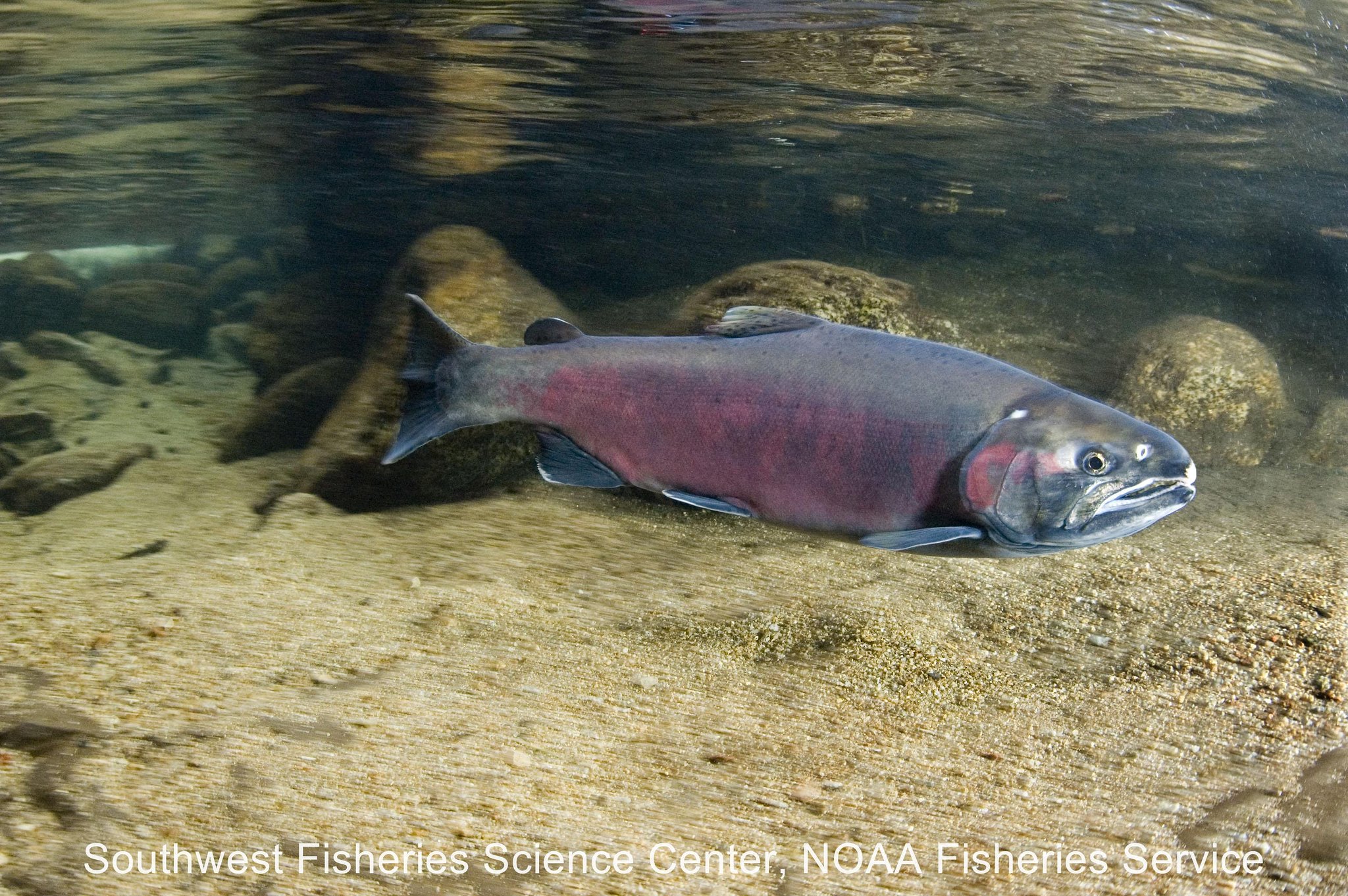By Erin Woolley
Last week, Governor Newsom released a strategy aimed at reversing the decline in California’s salmon population. The document sets forward six priorities and lists 71 actions to build healthier, thriving salmon populations in California. Many of the goals identified in the Salmon Strategy are laudable in concept. Removing barriers, restoring habitat, protecting adequate in-stream flows, and strengthening partnerships – particularly with Tribes and communities that have been excluded from the decision-making process – are critical to restoring self-sustaining salmon runs. The Governor’s salmon strategy also highlights some significant projects that are already well underway and that Tribes, fishing groups, and environmental organizations fought tirelessly to achieve.
However, we need actions that will support meaningful progress on these goals. What will truly make the difference for California’s salmon populations in the coming years is not more vague promises, but real, consistent action to support restoration and protect ecosystems. The Newsom Administration has a history of standing with large water agencies and other diverters against the recommendations of fishing groups, environmental justice organizations, tribes, and environmental advocates on the Bay Delta.
Notably, the Salmon Strategy says nothing about stopping the construction of harmful new dams and diversions. In the document, the Governor doubled down to safeguard the status quo of water in the Bay Delta by including adoption of “Voluntary Agreements to Support Healthy Rivers and Landscapes.” These voluntary agreements (VAs) may sound like part of the solution, but the reality behind their misleading name is that they are an excuse for water agencies and diverters from the Bay Delta estuary to delay the Water Board’s adoption of regulations to meaningfully increase in-stream flows to support salmon, improve water quality, and protect other beneficial uses in the watershed. The inclusion of Bay Delta voluntary agreements in this document is incompatible with the stated goals of restoring in-stream flows and improving conditions for salmon.

Adult coho salmon – NMFS/Southwest Fisheries Science Center; Salmon Ecology Team
Instream flows are important for many reasons including protecting the health of freshwater ecosystems, protecting aquatic habitat, supporting biodiversity and providing pathways for the spawning of steelhead and salmon. California’s aquatic ecosystems are on the brink of collapse and desperately need more life-giving fresh water flows as toxic algae blooms are on the rise causing fish and wildlife populations to decline precipitously.
In comments submitted last month on the Draft Staff Report for the Bay Delta Plan update, the US Environmental Protection Agency wrote that it was “concerned that the Staff Report does not include a sound scientific rationale that demonstrates how the proposed VA alternative will provide protection for all designated uses.” Sierra Club California has been advocating for years alongside allies in the Bay Delta for the Newsom Administration to adopt strong, science-based standards that would improve in-stream flows for imperiled native fish, including salmon. Instead of supporting the State Water Board in swiftly moving forward with the regulatory process, the Governor promoted an inadequate VA alternative, causing repeated delays to the adoption of the Bay Delta Plan. His administration has also supported the construction of two environmentally destructive projects, the Delta Tunnel and Sites Reservoir, that would further rob the Delta estuary of critically needed flows.
It is disingenuous for the Governor to say that he supports salmon while the Administration continues to promote harmful projects like the Delta Tunnel and Sites Reservoir and stand behind the Voluntary Agreement’s false solution for the Bay Delta. In response to the Governor’s VA alternative a coalition led by Save California Salmon asks Gov. Newson to ‘Amend Salmon Strategy to Add Flows Needed By Ailing Salmon’ in a press release.
Sierra Club California and our allies will continue to oppose these projects and advocate for equitable, science-based solutions that support ecosystems and local communities. This will be a busy year for water policy, so stay tuned for ways you can help support our efforts.
Erin is a staffer and water policy analyst with Sierra Club CA
[Cover image: Kokanee Salmon, CDFW photo by Andrew Hughan.]

